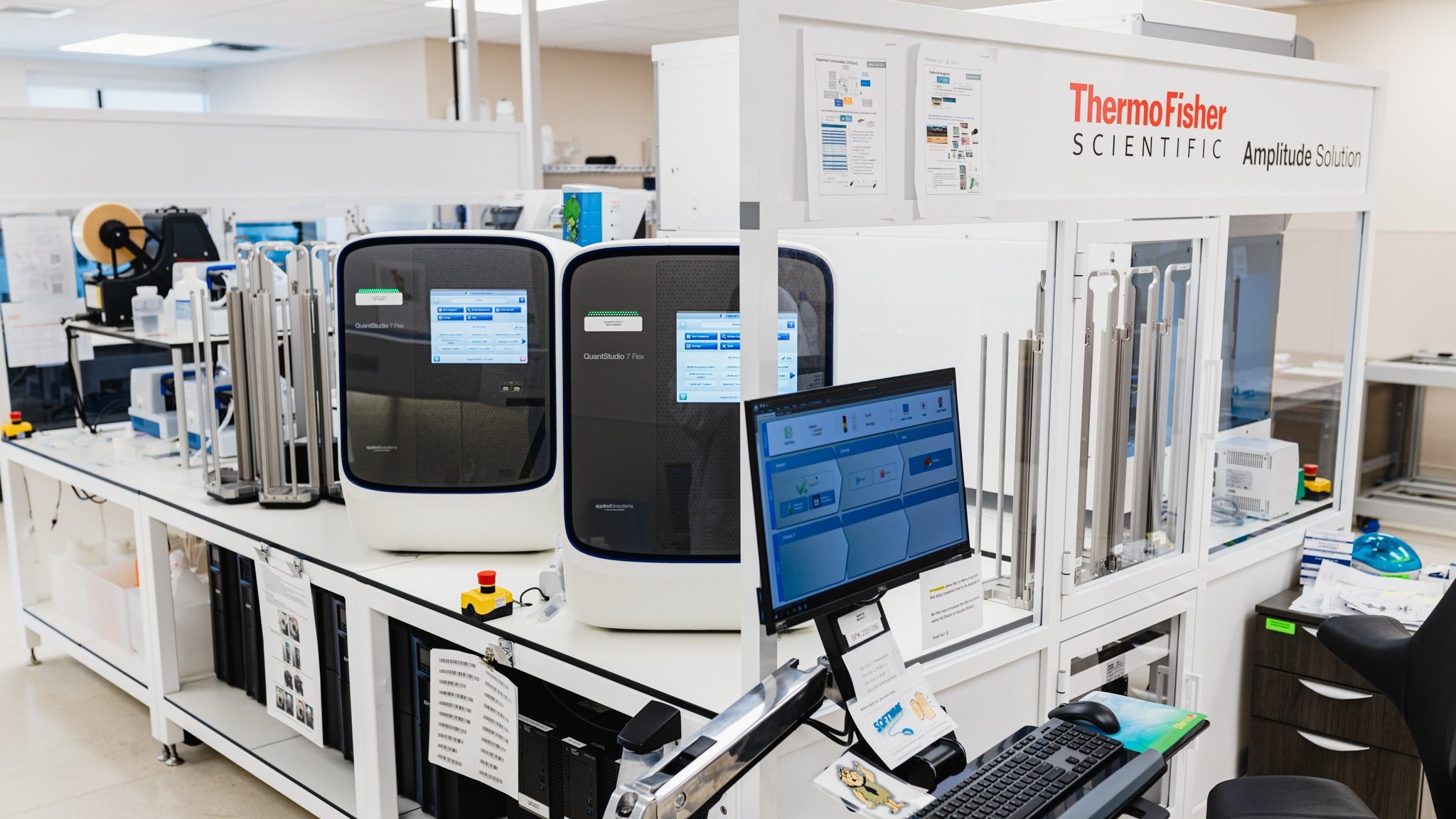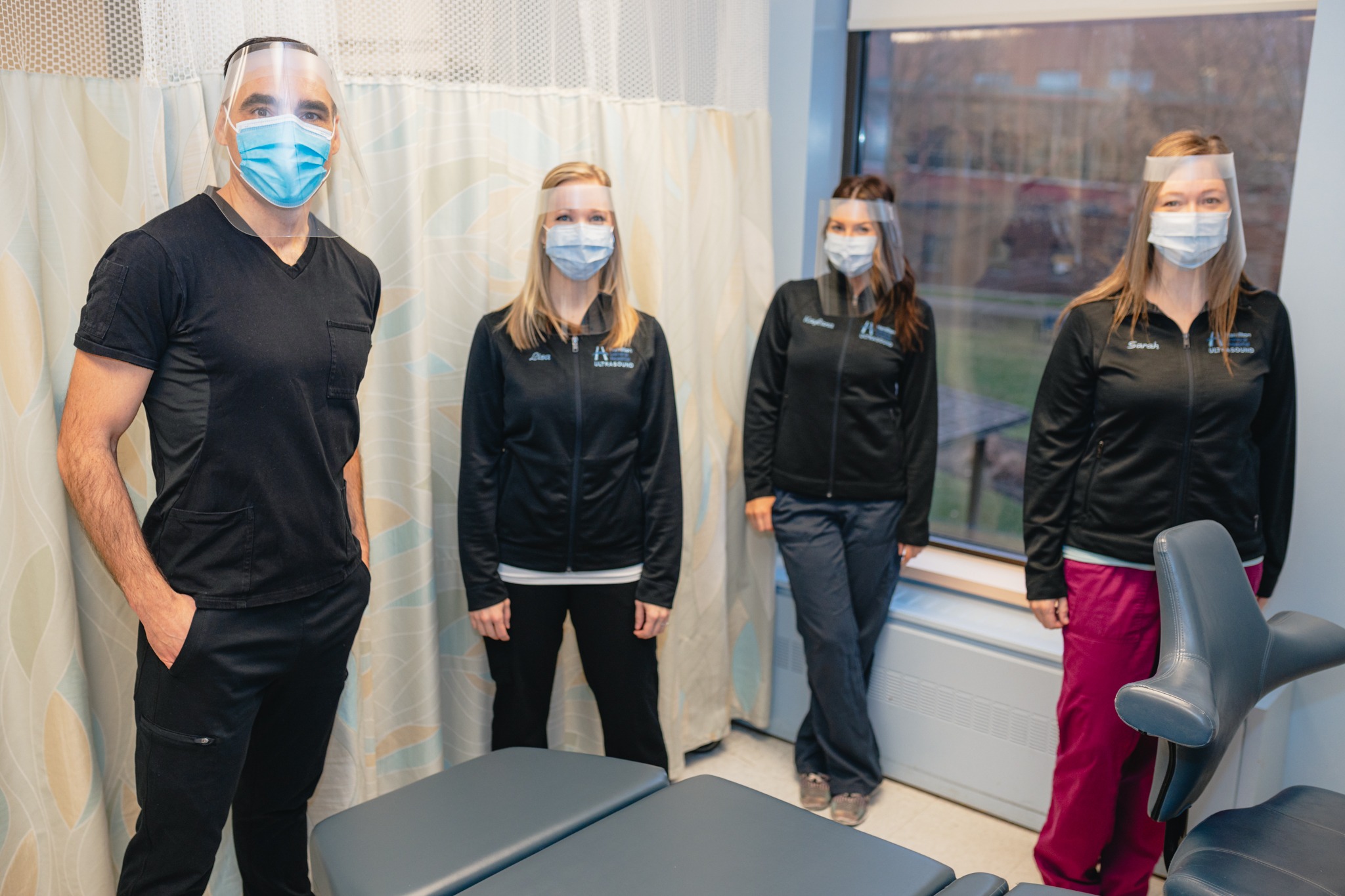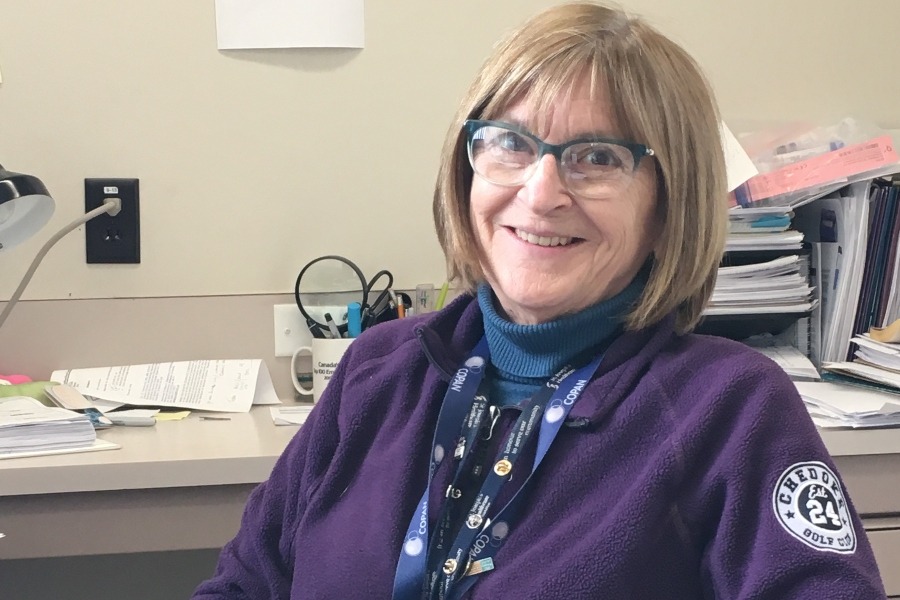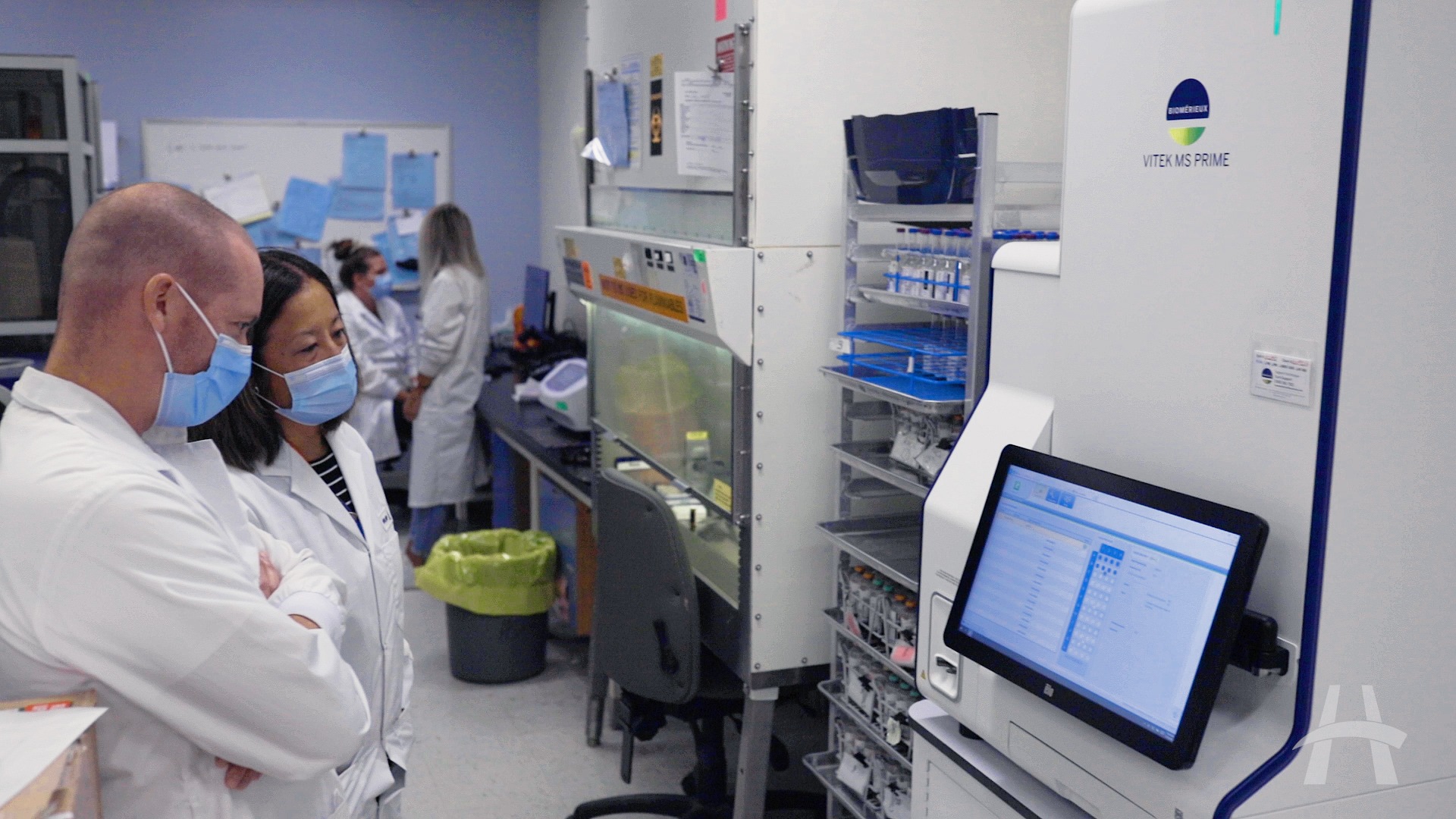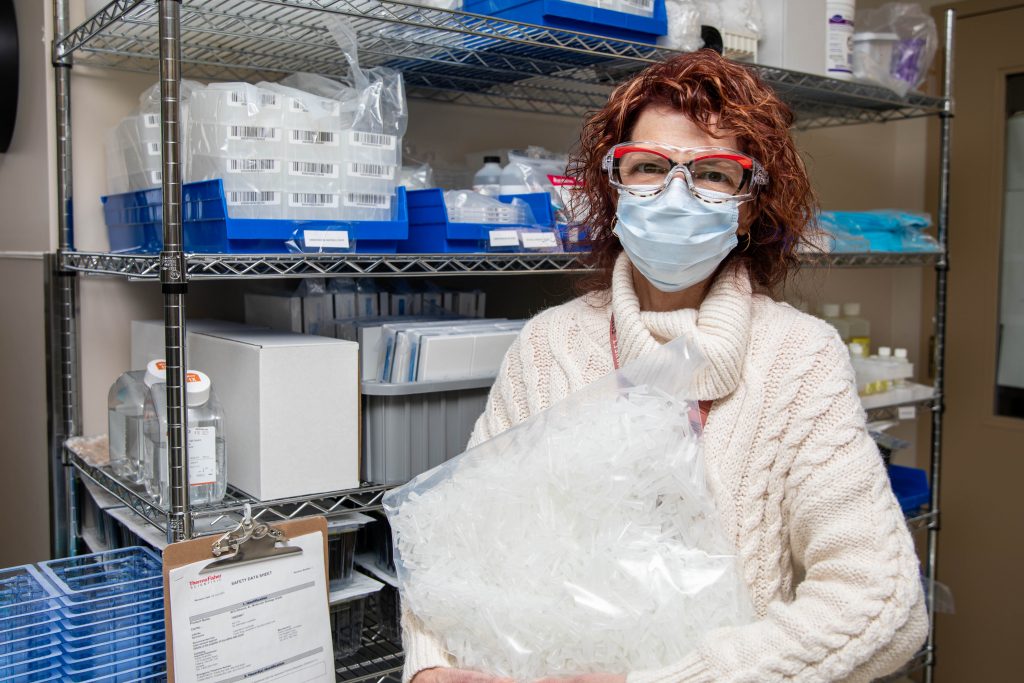
Hamilton virology lab gets a ‘grasp’ on COVID-19 testing
Necessity proved to be the mother of invention when a supply-chain shortage of small, disposable, plastic forceps threatened a busy virology lab’s ability to do COVID-19 tests.
The Hamilton Regional Laboratory Medicine Program (HRLMP) virology lab is a partnership between Hamilton Health Sciences and St. Joseph’s Healthcare Hamilton. It’s responsible for conducting clinical COVID testing from hospitals and assessment centres in Hamilton, across Ontario and even from outside the province.
As part of COVID testing, the swab taken from a person’s nasal cavity is stored in a capped test tube and sent to the lab for processing. The forceps, that work like tweezers, were critical to the testing process, since medical laboratory staff used them to remove the nasal swab from the tube.
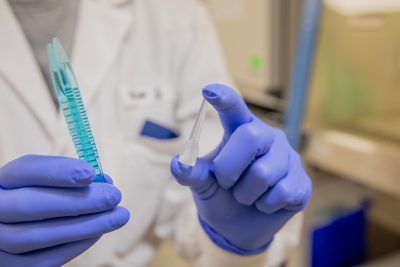
The new grasper (right) is easier to use than forceps (left).
Last fall, when the lab feared running out of forceps due to a global supply-chain shortage, lab staff together with the McMaster Manufacturing Research Institute (MMRI) and Coreprint Patterns, a precision mold-making and injection-molding firm in Hamilton, leapt into action to create an even better tool called a grasper.
As well as side-stepping delays, this new grasping tool allowed the lab to keep pace with the recent surge in testing caused by Omicron.
Flagging supply-chain concerns
Last September, HRLMP’s administrative support staff person Stephanie Reid tried ordering a new supply of the usual forceps from a national distributor, only to be told they were on back order until mid-December.
This led to HRLMP connecting with MMRI and Coreprint to work on a solution.
“Getting access to real-world problems and collaborating to develop solutions can really drive impactful innovation,” says Stephen Veldhuis, director of MMRI and the Braley-Orlick chair in advanced manufacturing engineering at McMaster University.
As part of this collaboration, Coreprint went beyond addressing the supply chain issue by creating the grasper — a new and improved product that overcomes the challenges of traditional forceps identified by the HRLMP team. Coreprint was able to go from concept to delivering the graspers in just weeks.
“They demonstrate a fantastic collaboration between the HRLMP and industry.”
“This new product is locally made, more environmentally friendly, and makes testing faster and less physically taxing,” says Mackensey Bacon, HRLMP’s laboratory research coordinator.
Keeping pace with demand
The lab has been especially busy over the last few weeks due to Omicron — processing an average of about 3,400 COVID nasal swabs per day. Since the beginning of the pandemic, the lab has processed over 915,000 tests. Over 85 per cent of specimens require graspers to process swabs.
Graspers, and the forceps they replaced, are single-use-only because they get contaminated, so each COVID test requires its own set.
Forceps versus graspers
The forceps used previously were difficult to handle with constant pinching and pulling. This new device grasps the swab instead, removing it from the tube in one quick movement which is much easier on the hands.
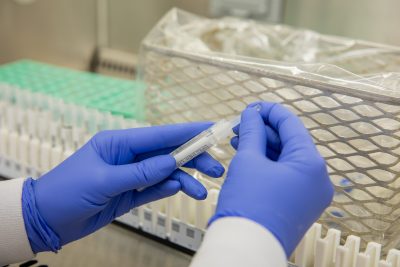
The new device grasps the swab from the test tube in one quick movement instead or tweezing it, making it much easier on the hands.
“And because the new graspers require fewer steps, the lab team is saving 120 minutes a day,” says Reid.
Forceps were also larger, creating more waste. “Our new product, while still plastic and disposable, is more environmentally friendly because it’s smaller so there’s less waste,” says Reid.
Meanwhile, supply chain challenges continue to be driven by the global shortage of polypropylene – among the most commonly produced plastic in the world. Coreprint had predicted the shortage and stocked up in preparation.
HRLMP ordered 150,000 units of graspers, which will last about three months. This should give Coreprint enough time to get more polypropylene in stock. There’s no interest in going back to forceps now that the graspers have proven to be so successful.
“These new graspers are a key representation of the unconventional thinking leading to innovation,” says Bacon. “They demonstrate a fantastic collaboration between the HRLMP and industry.”

